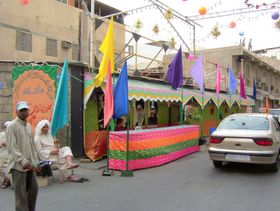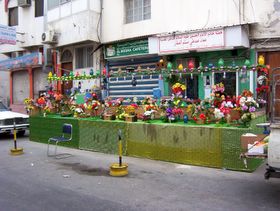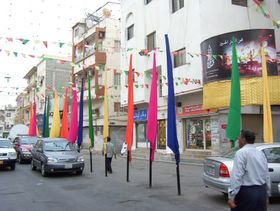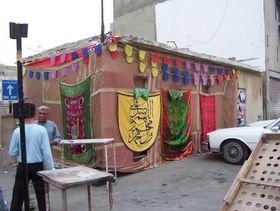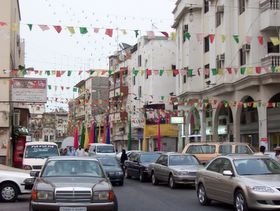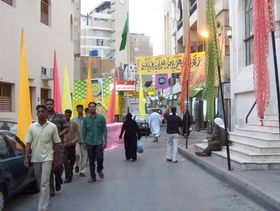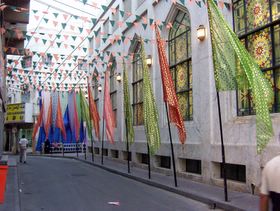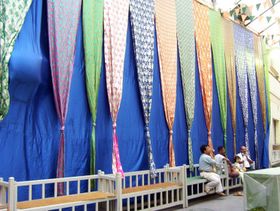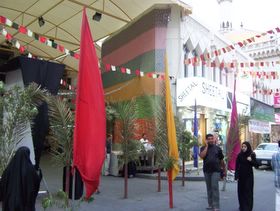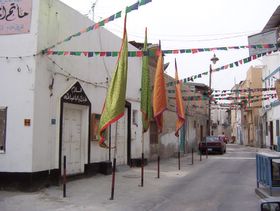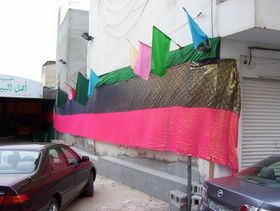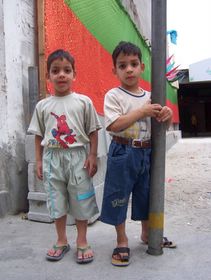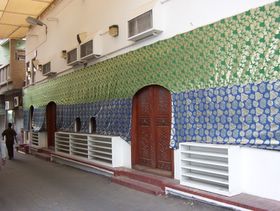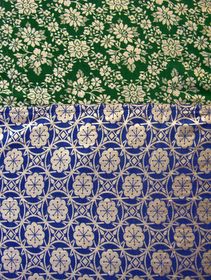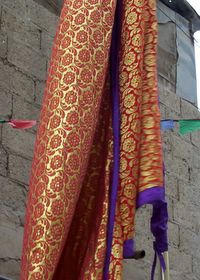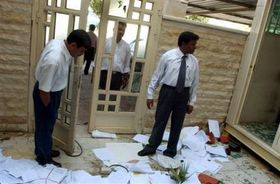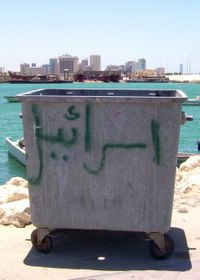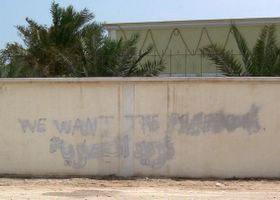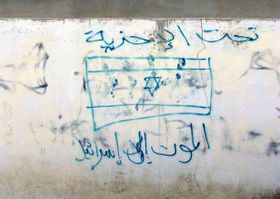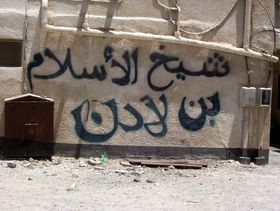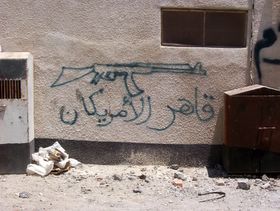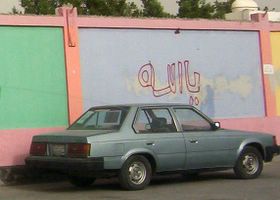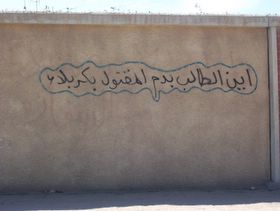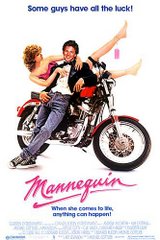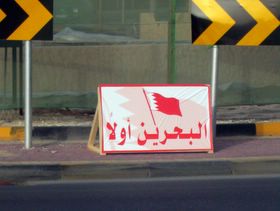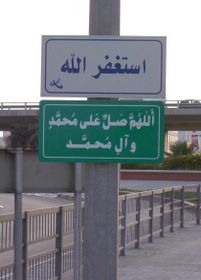Al Khawaja revisited
Thursday, April 28, 2005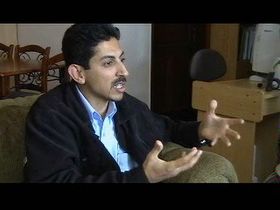
More from my backlog of unfinished posts. So way back in December 2004, a week or so after he was released from prison, I interviewed Abdulhadi Al Khawaja, the vice-president of the now outlawed (but still active) Bahrain Centre for Human Rights. Somehow I never got around to posting about the interview until now, so sorry for the delay. Even though the Al Khawaja Affair is old news now, many of the issues discussed in this interview are still very relevant today (so that's my lame excuse for this being so late).
A bit of background for those of you who are new. On Sept 24, 2004, Abdulhadi Al Khawaja delivered a speech as part of a symposium about poverty and economic rights in Bahrain, in which he criticized the Prime Minister. The next day he was arrested and the Bahrain Centre for Human Rights (BCHR) was shut down on orders from the government. During the two months that he was in prison as the trial went on, his supporters held protests on a regular basis. On the morning of Nov 21, the court sentenced Al Khawaja to one year in prison, but it was announced later in the day that he had been given a Royal Pardon from the King and was released. The BCHR remains outlawed by the government, but it has been very active nonetheless. You can read all of my posts about the Al Khawaja Affair here.
My interview with him took place on Dec 2, twelve days after his release from prison -- so bear in mind that some of the stuff discussed may be outdated. I got his phone number and gave him a call telling him about my blog, and he was was kind enough to invite me to his home and make the time to speak with me.
Click here to read/listen to the interview
The interview was recorded on video, but to save download times for you I'm only sharing the audio, reduced down to 16kbps quality. I've also edited out most of my own voice in the audio to save space (and because I can't stand listening to my own voice... and sorry for the sound of me saying "uh huh" throughout the interview... I didn't realize that the microphone was picking it up). I've written below my question (paraphrased, not the exact question), followed by a link to Abdulhadi's response. The sound files have been placed in a little Flash player, so what you need to do is click on the Flash icon below each question, which will open up a new browser window and load the player. (If you have just arrived from Venus and you don't have Flash already installed for your browser, then get it from here). The files are anywhere between 100KB and 300KB each, so it may take a while to load depending on your connection speed. Please email me or leave a comment if it's not working for some reason.
Also bear in mind that what is presented here is not the entire interview, just clips. And that not all of the clips are in their original order. On with the show:
Q: Why did you choose to publicly criticize the Prime Minister?

Q: What would be achieved if the Prime Minister was replaced?

On Old Guard vs Reformists:

Q: Didn't your statements of criticism sideline the progress made by the Crown Prince's reforms project (McKinsey) to some extent?

Q: What indications are there that make you so convinced that real economic reforms will not take place under the current government?

Q: In what way do you think your statements "weakened" the Prime Minister and the Old Guard?

On the urgent needs of the people, and the campaign to satisfy them:

Q: What kind of activities will this future campaign consist of?

Q: What will be the specific objectives of this campaign?

I asked him to respond to criticism that the effect of the planned demonstrations and strikes would hurt the economy rather than help it.

I then put forward the idea that public criticism of the Prime Minister or the government might make it harder for the Reformists within the regime to implement change. I reminded Abdulhadi that "saving face" and reputation is a big factor in regional politics, and suggested that public criticism might only provoke the Old Guard to seek means to strengthen its own position.

Since Abdulhadi didn't buy my argument that criticism might cause the Old Guard to strengthen itself, I asked him to explain specifically how the activities of the campaign would necessarily translate into political change.

I wasn't fully satisfied with his explanations of how the campaign would necessarily activate change, so I kept questioning him on the subject for a while. But then he admitted that he doesn't have all the answers regarding the specific dynamics of political change, and further explained that as a human rights activist it is not his responsibility to have them.

Abdulhadi's statements against the Prime Minister were very political in nature, and some people thought that this did not fall under the domain of human rights. So I asked him for his opinion on where the border (if any) between human rights and politics lies. I also asked him to respond to criticism that the BCHR's relationship with Al Wefaq is too close.

A bit more about the BCHR's relations with Al Wefaq and other groups.

That's it for now. I will try to write a follow up post with my own feedback and an analysis of what was discussed in light of recent events. But for right now, that's all.
